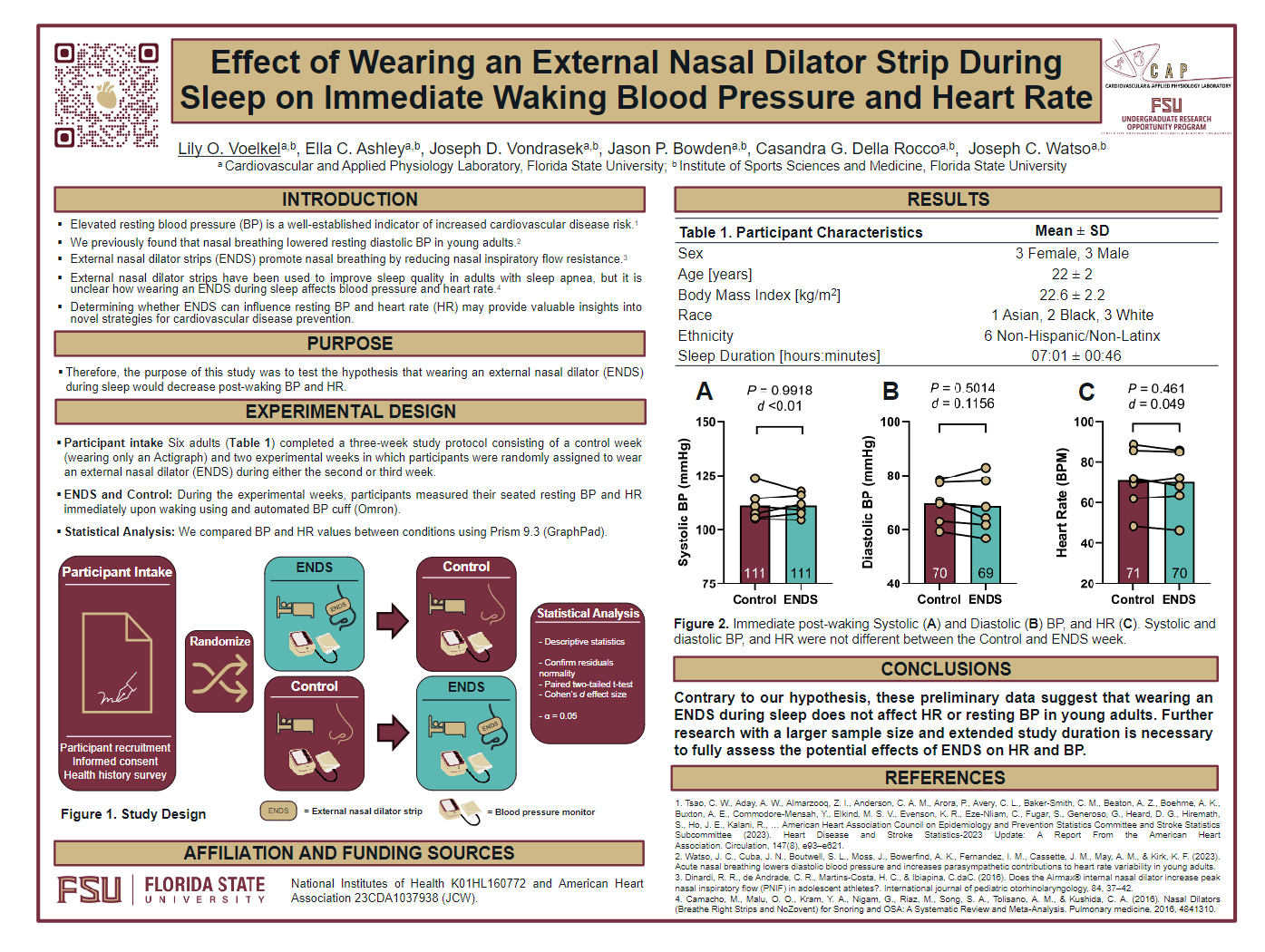Research Symposium
25th annual Undergraduate Research Symposium, April 1, 2025
Lily Voelkel Poster Session 2: 10:45 am - 11:45 am/ Poster #187

BIO
I am from Covington, Louisiana, and my passion for healthcare has led me to pursue a career as a Certified Anesthesiologist Assistant (CAA). As a research assistant in the Cardiovascular and Applied Physiology (CAP) Lab, I study human performance and cardiovascular function, gaining valuable hands-on experience that strengthens my understanding of physiology and patient care. My work in the lab involves assessing how various stressors, such as exercise and environmental conditions, impact cardiovascular health, providing important insights that contribute to broader advancements in healthcare and patient outcomes. In addition to research, I work as a caretaker for individuals with cerebral palsy through the Agency for Persons with Disabilities, a role that has deepened my commitment to patient advocacy and compassionate care. I also serve as vice president of Chi Omega, where I oversee all academic initiatives and scholarships, supporting members in their educational and professional growth.
Effect of Wearing an External Nasal Dilator Strip During Sleep on Immediate Waking Blood Pressure and Heart Rate
Authors: Lily Voelkel, Dr. Joseph WatsoStudent Major: Clinical Professions
Mentor: Dr. Joseph Watso
Mentor's Department: Department of Health, Nutrition, and Food Sciences Mentor's College: Anne Spencer Daves College of Education, Health, and Human Sciences Co-Presenters:
Abstract
Elevated waking blood pressure (BP) is a well-established indicator of increased cardiovascular disease risk. Previous research suggests that nasal breathing may influence BP, and external nasal dilator strips (ENDS) have been shown to promote nasal breathing by reducing inspiratory resistance. While ENDS have been used to improve sleep quality in individuals with sleep apnea, their effects on waking BP and heart rate (HR) remain unclear. This study aimed to test the hypothesis that wearing an ENDS during sleep would decrease waking BP and HR. Six adults completed a three-week study protocol consisting of a control week (wearing only an Actigraph) and two experimental weeks, in which participants were randomly assigned to wear an ENDS during either the second or third week. Waking BP and HR were measured immediately upon waking using an automated BP cuff. Statistical analyses were conducted using Prism 9.3 (GraphPad), with BP and HR values averaged across conditions. Results indicated no significant differences in systolic BP, diastolic BP, or HR between the control and ENDS weeks. These findings suggest that wearing an ENDS during sleep does not significantly affect waking BP or HR in young adults. Further research with a larger sample size and an extended study duration is needed to fully evaluate the potential cardiovascular effects of ENDS.
Keywords: External Nasal Dilator Strips, Blood Pressure, Heart Rate, Cardiovascular Health


